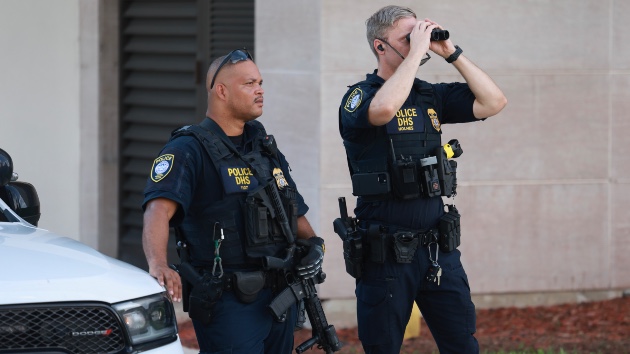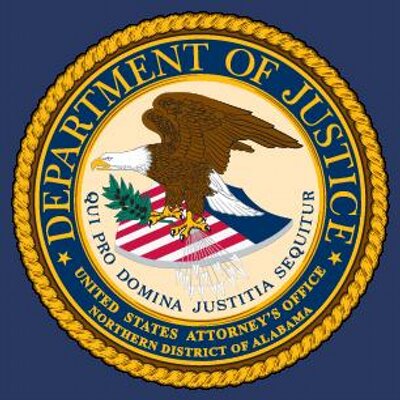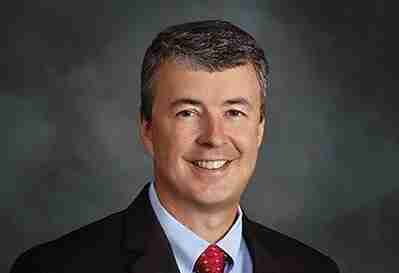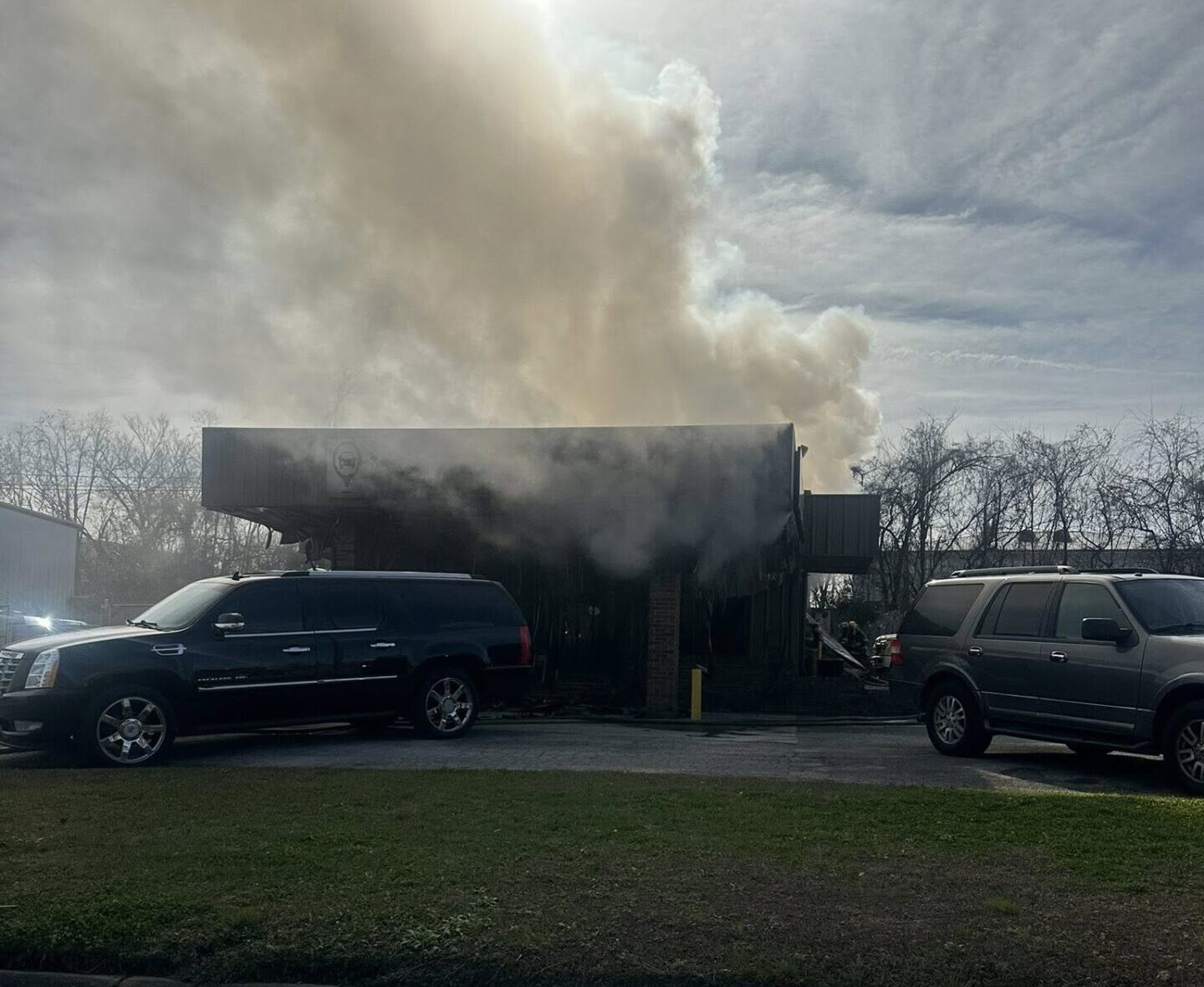
(WEST PALM BEACH, Fla.) — Ryan Routh, who is representing himself as he faces charges of trying to kill Donald Trump on Trump’s West Palm Beach golf course last year, rested his defense at his trial in Florida Monday following some chaotic testimony.
Routh, who lacks any legal education or experience, was cut off multiple times by U.S. District Judge Aileen Cannon while questioning the three witnesses he called, two of whom testified about his character.
Routh declined to testify in his own defense. Closing arguments are scheduled for Tuesday morning.
Judge Cannon ended the day by warning Routh that she will bar him from further addressing the jury if his closing argument is “disconnected” from the evidence in the case.
“Any argument you make … must be reasonably tied to the admitted evidence. Do you understand?” Cannon asked Routh, telling him that any deviation will “cause a problem.”
“Yes, Your Honor,” Routh said.
‘Give it your worst’
Routh argued Monday that the witnesses testifying about his character would show the jury he was incapable of killing Trump — though it risked opening the door to prosecutors introducing potentially damaging information about him.
“Give it your worst,” Routh told Judge Cannon after she warned of the dangers of using character witnesses. “We can analyze every moment of my life. We are here to ascertain the truth; we are going to give the jury everything.”
Routh then called to the stand his longtime friend Marshall Hinshaw, who told the jury that he has known Routh for twenty years as both a friend and coworker.
“Is it safe to say you knew everything in my life, and I know everything in your life?” Routh asked.
“I think so,” Hinshaw said.
“Is it your personal opinion of me that I am peaceful and gentle, and nonviolent?” Routh asked.
“I would say so,” Hinshaw said. “I would not expect you to harm anyone, Ryan.”
Routh proceeded to ask Hinshaw about how he treated his employees, his involvement in his community, whether his ex-wife was “not the easiest person to work with,” and his parenting style.
“Would you say I was a decent parent?” he asked.
“Absolutely,” Hinshaw said.
“You are not aware of me hitting or spanking my children?” Routh asked.
“No, maybe the other way around,” Hinshaw said.
“On the worst days when everything was falling apart, was I calm or patient?” Routh asked.
“Everyone looked up to you and respected you in that circle,” Hinshaw said before Cannon intervened.
“This must cease,” the judge said. “I am going to ask you to wrap up.”
“You always took care of people,” Hinshaw said. “You were the No. 1 person in my phone … you were great for me.”
During a brief cross-examination, a federal prosecutor sought to highlight that Hinshaw stopped seeing Routh regularly after 2017. He also asked if the allegations against Routh — including that he allegedly vowed to kill the Trump so he “cannot get reelected” — would change his impression of his longtime friend.
Hinshaw largely stood by Routh and pushed back when prosecutors sought to highlight Hinshaw’s rap sheet of larceny offenses.
“Like many people in America, I got addicted to drugs,” Hinshaw explained to the jury.
When Hinshaw concluded his cross-examination, he briefly flashed Routh the peace sign while leaving court.
‘You have always been a jolly person’
Routh’s second witness was Atwell Milsun, a longtime friend of Routh’s son Oren.
“Would you consider me to be gentle, and peaceful and nonviolent?” Routh again asked.
“I have never seen you as a violent person,” Milsun said. “Under stress, you have always been a jolly person.”
Routh then asked Milsun about Routh’s involvement in the community, including his helping employ others, lending people money, and assisting with community projects. “We are not talking about the police,” Routh joked.
“Did I do enough?” Routh asked Milsun about his involvement in the community.
“You did everything you could,” Milsun said.
Judge Cannon susequently cut off Routh’s questions, saying, “It’s crossed the line many times.”
‘I am not going to guess that’
Routh began his defense with a meandering direct examination of a firearms expert who tested the weapon allegedly used for the assassination attempt.
Routh attempted to focus his questions on the low likelihood that his assassination attempt would be successful because of issues with his weapon and the location of his alleged sniper perch.
Michael McClay, a Marine Corps veteran and expert in sniper tactics, noted that the firearm — a Chinese-made variant of the AK-47 — would routinely misfire, that the rifle’s scope appeared to be secured with a combination of putty, tape, and glue, that Routh was poorly camouflaged, and that hitting a target from 300 yards away would be difficult.
“Is there any way you could put a chance of success rate?” Routh asked.
“With the severity and seriousness of this, I am not going to guess that,” McClay responded.
“I respect that,” Routh said.
Despite McClay testifying as a defense witness, he appeared to be confused by many of Routh’s questions and declined to answer at times.
“Did you suffer mental anguish from being shot at?” Routh asked McClay, a veteran who saw combat.
“I don’t wish to answer that,” McClay said.
The main thrust of Routh’s direct examination of McClay was Routh’s suggestion that the assassination attempt would have failed due to his own incompetence and his being a self-described “coward.” Prosecutors had argued that Routh planned his attempt for months and set up a sniper’s perch with body armor to ensure that he would be able to shoot Trump.
“If someone is not dedicated to their mission 100%, is an exit plan vital to those who are cowards?” he asked McClay.
“I don’t understand,” McClay said.
“In your experience in the military, does it take a special type of person to take another person’s life?” Routh asked, prompting Judge Aileen Cannon to cut off the question.
After Judge Cannon criticized Routh for the “tenor” and “clear impropriety” of the question, Routh unsuccessfully argued that the question demonstrates he would not follow through with the assassination attempt.
“This whole case revolves around intent and state of mind … whether someone has the capacity [to kill],” Routh argued.
Prosecutors briefly cross-examined McClay to highlight how the weapon’s misfiring could be attributed to testing done on the gun after the shooting. The FBI used acid to try to recover the gun’s serial number, which had been scratched off.
‘That information is relevant’
Because Routh called two witnesses who spoke about character, prosecutors said they may seek to elicit testimony about some of Routh’s other alleged bad acts, including his alleged calls to kill politicians, like Trump, as well as his neighbors in Hawaii; racially offensive statements he allegedly made; and statements prosecutors say he made about his assassination plans in which he allegedly said he was “not going to go down easy for law enforcement” and that he would “shoot first.”
“If the defendant is going to try to develop he is nonviolent, that information is relevant,” prosecutor John Shipley said.
Routh, in earlier court filings, broadly described his defense strategy as emphasizing his “gentleness, peacefulness, and nonviolent caring for humanity.”
Among the exhibits Routh planned to use were a design for a DIY skatepark, videos and photos showing him recruiting and fundraising for the Ukrainian military, a photo of a flash mob he organized, and a church bulletin from 1980 when he was awarded an Eagle Scout award.
At the conclusion of Routh’s defense, federal prosecutors suggested they might not present a rebuttal case but said they have not made a final decision.
Judge Cannon — who has repeatedly clashed with Routh over his unusual courtroom tactics — curtailed much of Routh’s defense by blocking many of his proposed witnesses, including an ex-girlfriend and several Palestinian scholars, and prohibiting him from arguing that his actions were justified or that he would not have followed through with the assassination attempt.
Routh’s unorthodox defense case follows seven days of testimony from 38 witnesses called by federal prosecutors seeking to prove Routh came within a few hundred yards of killing then-candidate Trump on Sept. 15. Jurors heard from the Secret Service agent who said he spotted Routh hiding in the bushes of Trump’s golf course with an assault rifle, the man who illegally sold the gun to Routh, and a series of law enforcement witnesses who tied Routh’s fingerprints and DNA to the gun abandoned at the crime scene.
FBI agents also testified that Trump would have been less than 130 feet from Routh had Routh not been spotted by a Secret Service agent. Routh’s rifle, they argued, can hit a target ten times that, and the shot could have been made without a scope.
Two brothers who worked with Routh also testified about receiving a box from him in April 2024 — five months before the alleged assassination attempt — that contained wires, pipes, and bullets. After Routh’s arrest, the brothers said they opened the box to find a 12-page letter that prosecutors argue amounts to a confession from Routh.
“This was an assassination attempt on Donald Trump, but I failed you. I tried my best and gave it all the gumption I could muster. It is up to you now to finish the job; and I will offer $150,000 to whomever can complete the job,” the handwritten letter said.
Routh has argued that the letter does not describe the alleged assassination attempt.
At the conclusion of the government’s case on Friday, Routh argued that prosecutors had failed to prove their case and that Judge Cannon, who previously oversaw and dismissed one of Trump’s criminal cases, should toss the case. Routh claimed that the area in the bushes where he was allegedly found was a public area where anyone could carry a gun.
“They maybe proved that someone was outside the fence with a gun, but the gun was never fired,” Routh argued.
Judge Cannon denied Routh’s motion, concluding that prosecutors have provided enough evidence to let the jury decide the case.
Copyright © 2025, ABC Audio. All rights reserved.




